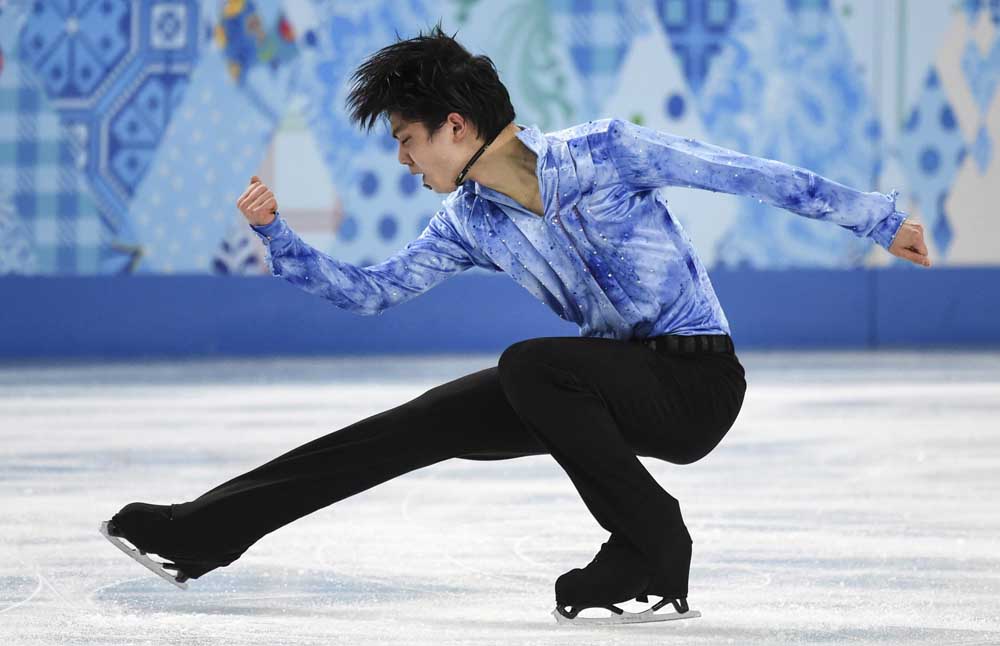Figure skating star rises as veteran exits
Published 12:00 am Friday, February 14, 2014

- Yuzuru Hanyu, from Japan, performs in the men’s short program figure skating competition Thursday. Paul Chiasson /The Canadian Press
SOCHI, Russia — As Evgeni Plushenko warmed up Thursday night, he stumbled where a few days ago he had been so sturdy and charismatic. After he withdrew from the men’s short program before a stunned home crowd, and later retired, calamity seemed to spread as if it were contagious, like the flu.
Jeremy Abbott, a four-time U.S. champion, soon crashed on a four-revolution jump and lay on the ice, holding his side for what seemed to be 10 seconds or so. Then he got to his feet and continued, urged on by the crowd and the anesthesia of adrenaline.
It was left to a Japanese teenager, Yuzuru Hanyu, 19, to remain composed and to jump with abandon in setting a world record of 101.45 points, positioning himself for today to become the first male Japanese figure skater to win a gold medal.
Just three years ago, Hanyu was training in his hometown Sendai when the devastating earthquake and tsunami struck nearby in March 2011, sending him running from the rink in his skates.
“I’m over the moon,” said Hanyu, the first skater to break 100 points in a short program, though he too, felt the nervousness of the evening.
“My legs were shaking,” he said. “I was certainly feeling the atmosphere of the Olympics. But it’s still like any other competition, and I tried not to forget that.”
On Sunday, Plushenko, 31, won a gold medal for Russia in the team figure skating competition. That was his fourth medal in four Olympic Games. He was a towering jumper and showman. Only Gillis Grafstrom of Sweden — the Olympic champion in 1920, 1924 and 1928 and the silver medalist in 1932 — can match Plushenko’s medal collection. Perhaps even fewer can match his magnetism.
Plushenko won gold in 2006 and silver in 2002 and 2010. But a chance of a surpassing fifth medal seemed remote entering the Sochi Games.
Plushenko has struggled with knee and back injuries in recent years and competed infrequently. He said that screws remain in his back from an operation.
In Thursday’s warm-ups, Plushenko tried two triple axels and said he felt a sharp pain “like a knife” in his back. He stumbled out of the jumps and appeared pained. A look of resignation crossed his face.
He bent over as he skated along the boards, then spoke with his coach, Alexei Mishin, saying, “I can’t skate.”
At practice Wednesday, Plushenko said, he fell on a quadruple toe jump. When his turn came in the short program, he approached the referee and withdrew. He skated to center ice, patting his heart and taking a bow. After a long career of victory and injury — four Olympic medals and 12 operations — he had come to this awkward end.
“I think it’s God saying, ‘Evgeni, enough,’” with skating, said Plushenko, who announced his retirement.
Hanyu said he was disappointed not to find Plushenko, his idol, in first place on the scoreboard so that he could have challenged him one final time.
“I took up skating because of him,” Hanyu said. “I respect and admire him dearly. It’s just sad.”






